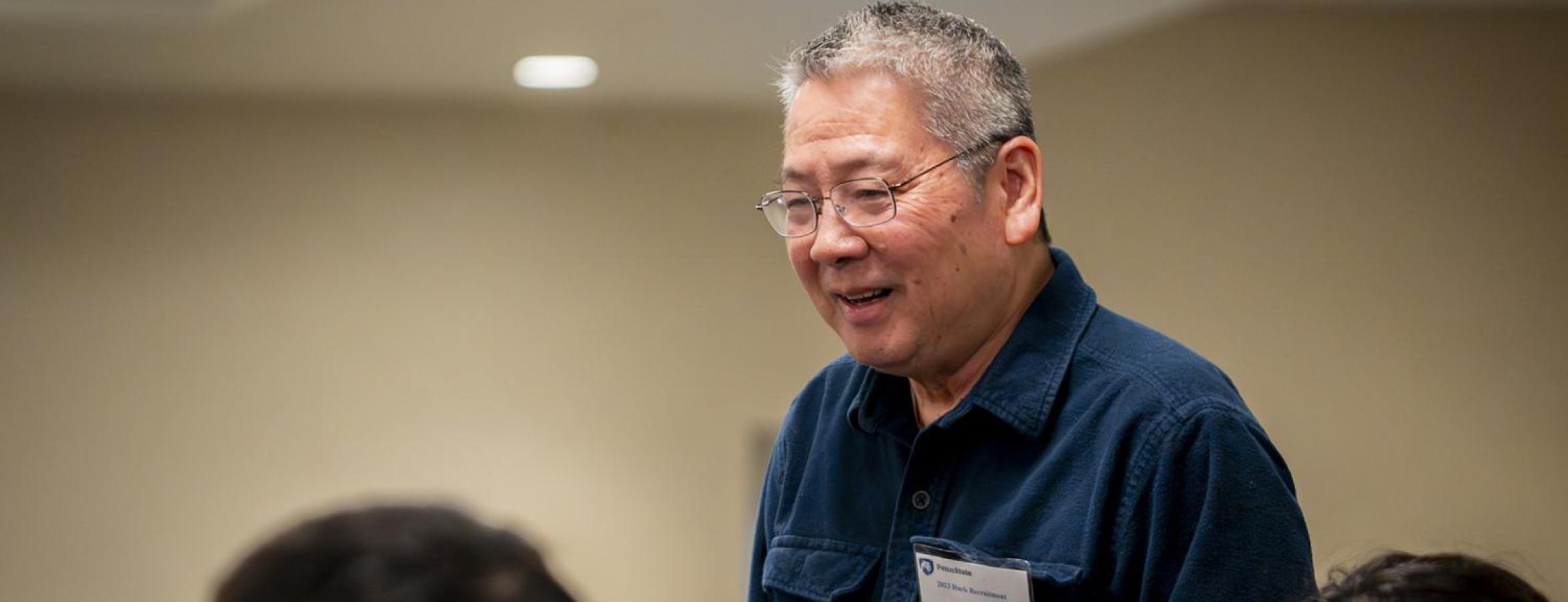Teh-hui Kao, distinguished professor of biochemistry and molecular biology, has stepped down as chair of the Intercollege Graduate Degree Program (IGDP) in Plant Biology after 26 years in the role. Longtime program faculty member Charlie Anderson, professor of biology and co-director of the Center for Biorenewables, will take over as chair.
“We are so fortunate to have had Teh-hui leading the plant biology graduate degree program for the last 26 years,” said Christina Grozinger, director of the Huck Institutes of the Life Sciences. “Teh-hui has a deep, integrative understanding of plant biology that has helped shape the program and ensured that our students are always working at the forefront of this field and learning about emerging questions and cutting-edge technologies through their courses and the annual Plant Biology Symposium, which has been hosted by Penn State since 1986.”
“Teh-hui is also completely committed to recruiting and supporting our graduate students and always has gone the extra mile to help support our students and their faculty advisers.”
During Kao’s tenure, the program experienced profound changes. A major milestone came in 2006 with the formation of the current plant biology program through the merger of two separate graduate tracks: an existing plant physiology program and an ecological and molecular plant physiology (EMPP) option. Kao spearheaded the integration, helping to expand the program’s scope and modernize its curriculum in alignment with the rapidly evolving field of plant biology while never losing sight of the need to prioritize the students under his guidance.
“I have always been impressed by the care Teh-hui has for each plant biology student and even each applicant,” said longtime colleague Melissa Rolls, Berg Professor of Biochemistry and chair of the Molecular, Cellular and Integrative Biosciences IGDP. “He keeps track of each flight as it comes in and makes sure every interviewee and student feels valued. For him, the students are always first, and that has made him an amazing program chair.”
“One of the many qualities that sets Dr. Kao apart — particularly in graduate recruitment — is his exceptional dedication to every student,” said Dana Coval-Dinant, Huck’s graduate programs coordinator. “He is not only a remarkable faculty member and mentor, but also a devoted grandfather and a truly kind, compassionate person.”
In 2010, the excellence of Penn State's plant biology program was nationally recognized when the National Research Council ranked it among the top of the 118 plant sciences graduate programs in the United States in its Assessment of Research-Doctorate Programs. Unlike earlier assessments based on reputation, this ranking used rigorous data from faculty research activity, student success and professional recognition — emphasizing the program's academic excellence.
Beyond program structure and national rankings, Kao nurtured a vibrant academic community. With 38 faculty members from 11 departments across three colleges, the IGDP in plant biology offers students exceptional diversity in research opportunities.
“Our program does not admit students directly into specific labs,” Kao said. “We require first-year students to conduct lab rotations before they settle down in their lab homes. Thus, the program attracts students who have a broad interest in plant biology and wish to explore potential dissertation research areas through lab rotation.”
Though stepping down as chair, Kao will remain actively involved in the program. He will continue to organize the weekly Plant Biology Seminar series and will teach the colloquium course associated with the seminar series. He also will continue to teach biochemistry and molecular biology.
“The program would not be where it is today without the dedication of program faculty to all aspects of the program mission,” Kao said. “Their collective effort has allowed the program to continue to recruit outstanding students year after year.”
Kao received his bachelor of science degree from National Taiwan University and earned his doctorate at Yale University. Before joining Penn State, he undertook postdoctoral research at the Roche Institute of Molecular Biology and Cornell University.
